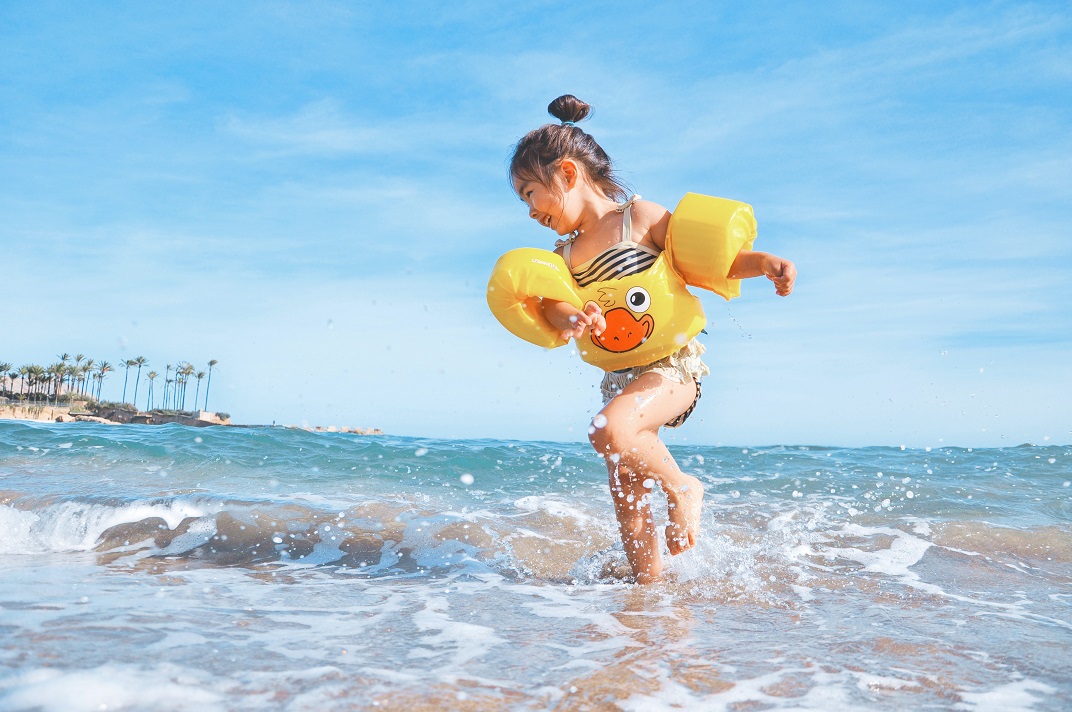
Beach Safety for toddler
Taking your toddler to the beach can be a fun and exciting experience, but it’s important to prioritize beach safety to ensure a safe and enjoyable time. Here are some tips to keep in mind when taking your toddler to the beach:
1. Choose a safe beach
Before heading to the beach, do some research to find a safe beach that is suitable for toddlers. Look for a beach with gentle waves, a gradual slope, and a lifeguard on duty. Check for any warning signs, such as rip currents or hazardous wildlife.
2. Keep a close eye on your toddler
Toddlers are curious and can wander off quickly, so it’s important to keep a close eye on them at all times. Designate a specific area where your toddler can play and keep a watchful eye on them. Consider bringing a playpen or a small inflatable pool for your toddler to play in.
3. Apply sunscreen
Sunscreen is essential to protect your toddler’s delicate skin from the sun’s harmful rays. Choose a sunscreen with an SPF of at least 30 and apply it generously to all exposed areas of your toddler’s skin. Reapply every two hours, or more frequently if your toddler is playing in the water.
4. Dress your toddler appropriately
Choose lightweight and breathable clothing for your toddler, such as a rash guard or a t-shirt and shorts. Avoid tight-fitting clothing that can restrict movement and cause discomfort. A wide-brimmed hat can also provide additional sun protection for your toddler’s face and neck.
5. Stay hydrated
Toddlers are more susceptible to dehydration than adults, so it’s important to keep them hydrated while at the beach. Bring plenty of water and encourage your toddler to drink regularly. Avoid sugary drinks, as they can dehydrate your toddler.
6. Teach your toddler about water safety
Teach your toddler about water safety before heading to the beach. Explain the importance of staying close to you at all times and the dangers of going too far out into the water. Encourage your toddler to never swim alone and to always ask for help if they need it.
7. Use flotation devices
Flotation devices such as life jackets or arm floaties can provide an extra layer of safety for your toddler while in the water. Make sure the device fits properly and is approved by the U.S. Coast Guard or other safety organizations.
8. Avoid peak sun hours
The sun’s rays are strongest between 10am and 4pm, so it’s best to avoid spending prolonged periods of time at the beach during these hours. Consider taking a break during these hours and finding a shaded area for your toddler to rest and play.
9. Watch for signs of distress
Watch for signs of distress in your toddler, such as shivering, blue lips, or fatigue. These can be signs of hypothermia, and it’s important to take your toddler out of the water and warm them up immediately.
10. Know basic first aid
It’s important to be prepared in case of an emergency. Learn basic first aid, such as CPR and how to treat minor injuries such as cuts and scrapes. Bring a first aid kit with you to the beach and make sure it includes items such as bandages, antiseptic, and tweezers.
In summary, beach safety is important for toddlers to ensure a safe and enjoyable experience. Choose a safe beach, keep a close eye on your toddler, apply sunscreen, dress appropriately, stay hydrated, teach water safety, use flotation devices, avoid peak sun hours, watch for signs of distress, and know basic first aid. By following these tips, you can help ensure a fun and safe day at the beach for you and your toddler.

